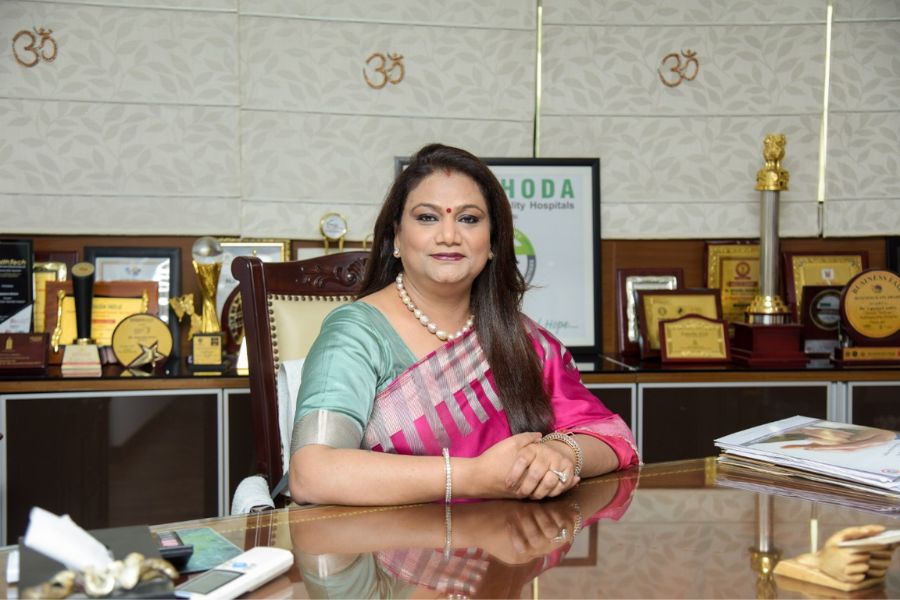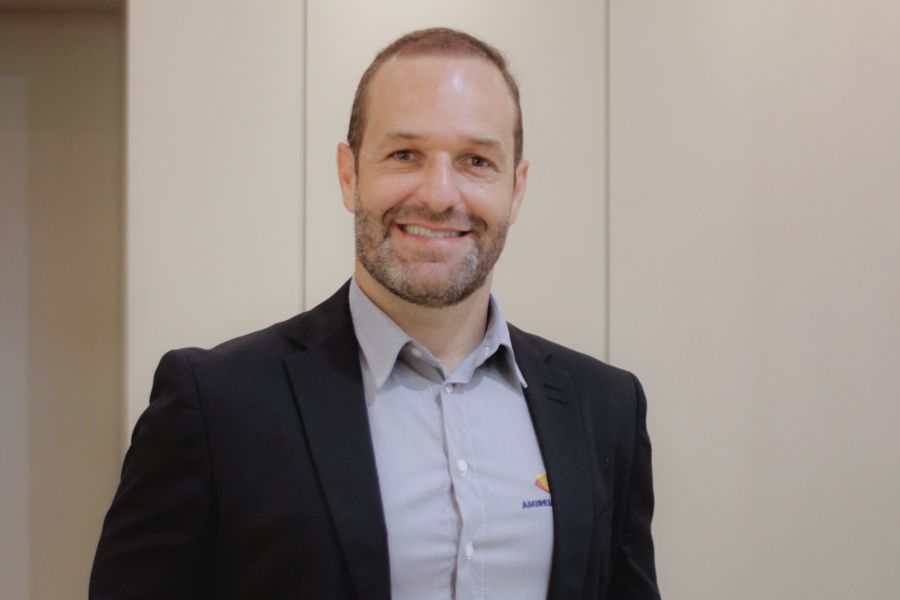Indian healthcare @75: Talent, infrastructure, legacy and vision
Through the pandemic and beyond, India has shown that it has the capabilities to bridge critical gaps in global healthcare. Dr Upasana Arora, Director, Yashoda Super Specialty Hospitals, shares her views on how Indian healthcare is well positioned to achieve the dual vision of ‘Heal in India’ and ‘Heal by India’ in the coming years.

India’s healthcare system, which is enriched by 5,000-year old legacy of a glorious civilization, has much to offer to the world. It is in fact well poised for a quantum leap, even as we celebrate 75 years of our independence and the beginning of ‘Amrutkaal’. To actually understand the worth of our healthcare sector, it will be pertinent to share a bit of ‘outside-in’ perspective.
A few months ago, I wanted to take a second opinion for an autoimmune disease, for which I am being treated in my own hospital. I visited a special surgery hospital in the US, where I met Dr. Ronaldo McKenzie who was Head of Rheumatology and showed all my reports. His first response was:
“You are getting the best treatment, why you are here? The best doctors are Indians. Go back to India and take treatment from your doctors!”
Indians are basically very hardworking and intelligent. It is a well-accepted fact that the best doctors and engineers in the world are Indians. Everybody knows that US and UK healthcare is run by Indian doctors!
In India, medical help is readily available, without very long queues. We probably do not appreciate the worth of this privilege as well as we should. If you are, for instance, going for an MRI in USA, you need to take an appointment two months in advance. In India, anybody can go and get it done then and there.
Moreover, modern Indian hospitals are providing all kinds of treatments under one roof – Allopathic, Homeopathic, Ayurveda, Ayush, Yoga. We are providing world class health care with cutting edge technology with all best doctors and charging very less if you compare with other countries.
Moreover, India actually believes in Atithi Devo Bhava, which sets us apart. In our culture, we become very close to our patients also and treat them with love, affection, care. We call them by name, rather than a bed number. So these kinds of things make India different from other countries.
COVID-19 – despair, loss and resurgence
The COVID-19 pandemic brought healthcare to the forefront, revealing both our weaknesses as well as strengths and potential. Our healthcare system was indeed challenged, especially during the second wave when lots of people lost their lives. While India has a good number of hospitals, the pandemic presented a once-in-a-century scenario, when so many people needed to get admitted at the same time.
Our government realized that for such situations, we need more beds, because India has a large population. We also realized that we actually face a shortage of doctors, nurses, as well as some things like PPE kits, oxygen concentrators, etc. And now it’s a demand of the times that all hospitals have to be prepared all the time for any kind of problem. For instance, everybody’s talking about monkeypox these days.
Yet, we also have significant positives to show to the world that India is the best destination for healthcare.
There is a popular saying “Aavashykatha aavishkaar ki janani hai (or Necessity is the Mother of Invention)”. From zero manufacturing capability, we are now the biggest suppliers of PPE kits and supplying to other countries.
Another such positive is our vaccination drive, where India has provided the second dose to all and even a booster dose to 30% of the population. This is a feat that even developed countries are still struggling to match. We now have the highest number of vaccinated people in world. At the same time, our hospitals, that were not having more facilities, were able to save many lives.
If we can do this kind of delivery in a country as large as India, you can well imagine what we can achieve if we prepare ourselves. And hospitals have taken their learnings from the calamity. Today, if you go to any hospital, you will find that they have installed a pressure swing adsorption (PSA) plant, and lots of extra beds are also being added. So if anything will happen, we are actually better prepared.
Taking Indian healthcare to the world
India is already a leading destination for medical tourism, and has much more to offer to the world. Our respected Prime Minister is taking so much interest in the sector, and the government is emphasizing on both Heal in India and Heal By India.
We are planning to promote India’s medical tourism in a big way with the Sanjeevani programme. Around 50-60% people are young, and now we are increasing medical and nursing colleges as well as paramedical trainings. Unlike other nations, India has no problem of manpower. This year, we are planning to invite not only South African or Middle Eastern, but also patients/companies/governments from the UK and the US, because these countries are facing lots of problems in terms of waiting time.
We are capable to cater to more patients than other destinations like Thailand and Bangkok. They don’t have this much of population as they are not big countries. So we have land as well as manpower and skills and can provide everything. I am certain that from 2023, medical tourism will commence with full force and we will get the best results.
The government is making a portal, where all big hospitals will be registered, especially NABH accredited hospitals. In fact, accreditation is mandatory to provide medical care abroad. Every hospital is supposed to put all their services, as well as their outcomes, number of surgeries done (like joint replacement, heart replacement, etc). It will be a game changer and greatly facilitate foreign patients.
Our respected Prime Minister is also very keen that Indian hospitals should go abroad, and establish their setups there, besides delivering services through telemedicine or medical personnel. A lot of Indian nurses and physiotherapists, for instance, are working in different countries, which is also ‘Heal by India’. But at the same time, if you talk about infrastructure, other countries are offering Indian hospitals to come. They are promising free of cost land, to set up and provide healthcare services.
At the same time, there are few countries, who admit that while they have big, well-equipped hospitals, they face shortage of skilled doctors, nurses and other staff. So, they would like Indians to come there and provide treatment to citizens of that country. Just as patients are coming to us, we can go to patients. Our specialist doctors can do few days in a month in some countries, or some hospitals can establish there.
So a lot of such initiatives are in progress, and within a few years, India is going to become a vishwa guru in healthcare, because we have all the right ecosystem drivers in place and are also backed by our government’s vision to make India heal for itself and the world.
Dr. Upasana Arora is a dynamic leader in the Indian healthcare industry. She is the First Indian working in India to be awarded the prestigious Fellowship of ISQua (International Society for Quality and accreditation.) She is a fellow of Quality Leadership Program – Harvard Medical School, Boston, USA and also holds an International Fellowship on Health Technology Assessment (HTA), Anglia Ruskin University, U.K. She has been continuously working for excellence in healthcare and has earned an Honorary Doctorate in Hospital Administration by National American University. She currently holds the Chair of Healthcare of the Central Governing Council of SEPC. Views expressed are personal.













Nicely presented our nation’s future plan and perspective. I wish your all words be correct in coming days especially providing services to the door of foreign patients by indian health care system. Cheers!!!!